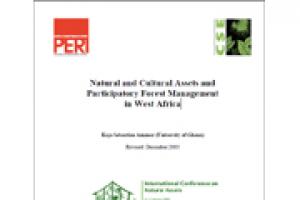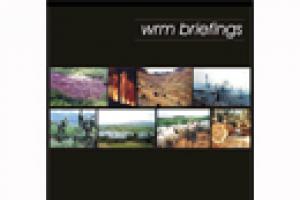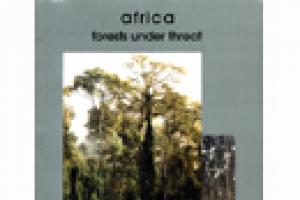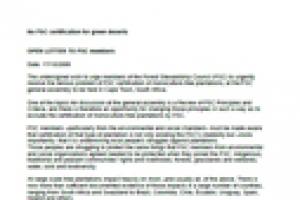by Kojo Sebastian Amanor (University of Ghana), December 2003
Natural and Cultural Assets and Participatory Forest Management in West Africa
Africa (general)
Other information
16 December 2003
Other information
19 August 2003
It is now well-documented how indigenous communities face serious discrimination from their societies, are exploited by others, and possess little protection for their resource rights upon which they rely to secure their livelihoods. Many of these groups also live in areas where local, national and international conservation organisations maintain strong interests.
Bulletin articles
2 January 2003
The Ministerial meeting in the Africa Forest Law Enforcement and Governance process is scheduled to take place in Brazzaville, Congo April 1-4th, 2003. Government delegates as well as representatives from the timber industry, multilateral and bilateral organisations, and civil society are expected to take part in the meeting where a Ministerial declaration will be drafted. The following briefly introduces the FLEG process, then moves on to discuss civil society participation in the up-coming Ministerial.
Publications
17 December 2002
Forests are one of the most valuable eco-systems in the world, containing over 60 per cent of the world's biodiversity. This biodiversity has multiple social and economic values, apart from its intrinsic value, varying from the important ecological functions of forests in terms of soil and watershed protection to the economic value of the numerous products which can be extracted from the forest. For many indigenous and other forest-dependent peoples, forests are their livelihood.
Bulletin articles
3 December 2002
Burdened by a mounting foreign debt and pushed by globalisation and trade liberalisation, Ghana, as many other West African countries, has had its ability to finance domestic public spending severely constrained. In addition most of the exports of African countries suffer decline in prices leading to overall poor returns in revenue and contributing to huge budget deficits.
Publications
9 August 2002
This book gathers a selection of articles published in the monthly electronic bulletin of the World Rainforest Movement (WRM), addressing the issue of the processes leading to the destruction of African forests and the struggles developed there to protect and use these forests adequately.
Bulletin articles
14 June 2002
The following statement was issued by a number of African NGOs (see below) present at the African Forest Law Enforcement and Governance Ministerial Planning Meeting held in Brazzaville, Republic of Congo on June 18 - 21, 2002:
"There is little doubt that forest crimes is pervasive and causing enormous damage to the environment and the economy as well as hurting the poor the most. Almost everywhere, forest resources are under the threat of criminal activities by unscrupulous loggers, traders, and corrupt government officials.
Bulletin articles
14 May 2002
Six Central African countries --Equatorial Guinea, Gabon, Congo Republic, the Democratic Republic of Congo (former Zaire), Cameroon and the Central African Republic-- share the rainforest ecosystem of the Congo Basin, which is home to one of the world’s largest contiguous blocks of tropical rainforest, only second to that of the Amazon Basin in South America in terms of not fragmented forest areas.
Other information
16 March 2002
By Liz Alden Wily.
Independent land tenure & community forest management adviser
Participatory forest management in Africa. An overview of progress and issues
Bulletin articles
16 March 2002
Wally Menne, a member of the South African Timberwatch Coalition, sent the following message to Magnus Grylle of the Food and Agriculture Organization (FAO):
Other information
21 December 2001
In spite of the fact that the situation in the Congo Basin has been much less publicized than that of the Amazon Basin, the truth is that deforestation has reached alarming rates in the six countries lying within the basin (Cameroon, Central African Republic, Congo, Republic of Congo, Equatorial Guinea and Gabon).
Other information
17 August 2000
Plantation projects using tree monocultures to sequester carbon being implemented in UGANDA by two Norwegian firms constitute a paradigmatic example of the rationale and the consequences of this kind of projects.




